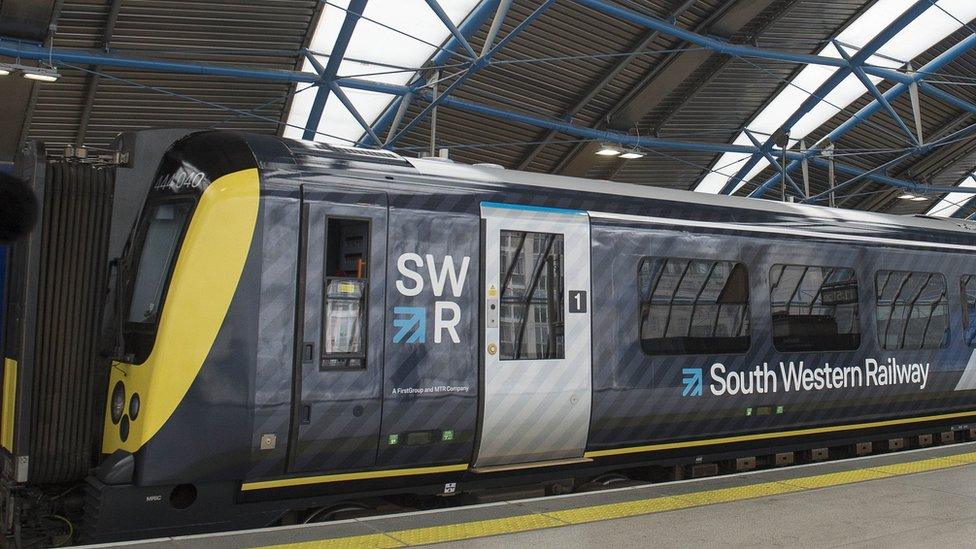Rail strikes hit Northern, Greater Anglia, South Western and Merseyrail
- Published
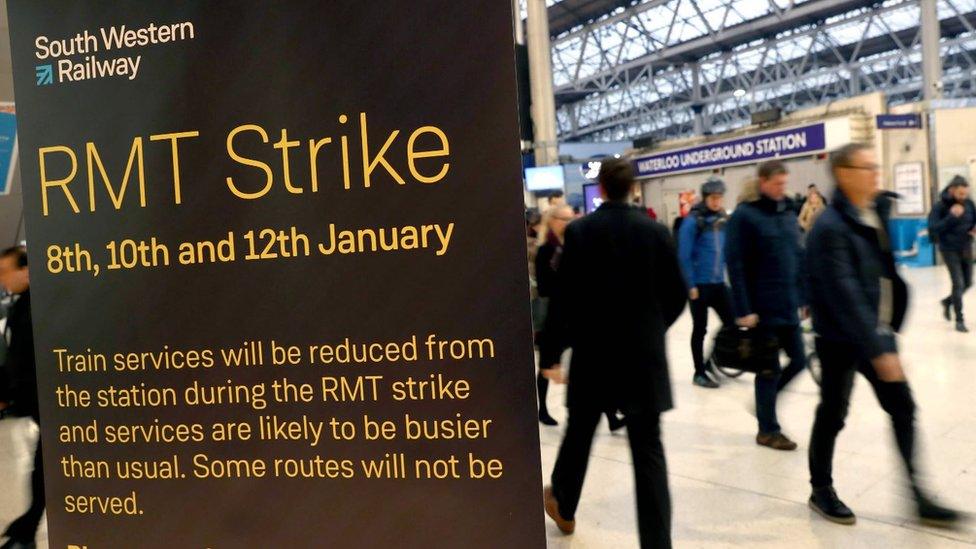
Greater Anglia, Merseyrail, Northern and South Western Railway services are affected
Fresh strikes are causing more disruption for rail passengers in the latest 24-hour walkout over safety.
RMT union members at Northern, South Western Railway, Merseyrail and Great Anglia are taking action for the third time in less than a week.
The union says scrapping guards and introducing driver-only operated trains risks passenger safety.
But the rail companies have insisted the move is safe and already widely used.
Picket lines have appeared at some railway stations affected by the strike, and passengers are facing delays, cancellations and replacement buses in some parts of the country.
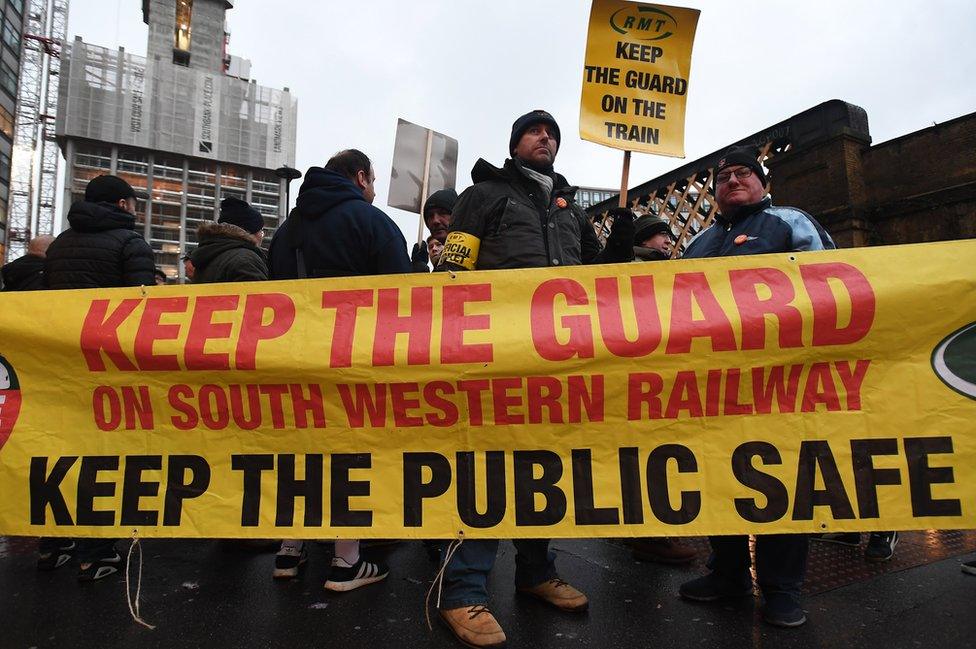
RMT members protested outside Waterloo Station in London as part of the latest strike
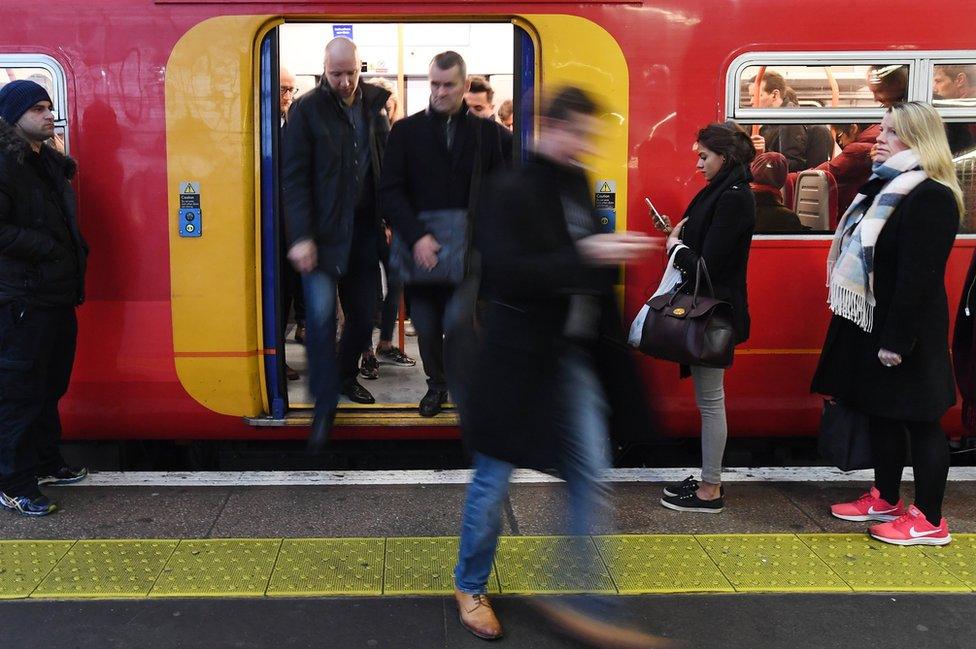
South Western services travelling through Waterloo were among those affected
All four operators said some services would still be running:
Northern, external said more than 1,300 trains would run between 07:00 and 19:00 GMT, representing about 50% of its weekday timetable
Greater Anglia, external said it planned to keep conductors on trains and would be operating a normal service
Merseyrail, external said no trains would run on the Kirkby, Ellesmere Port or Hunts Cross lines, but most others would operate between 07:00 and 19:00
South Western Railway, external, which operates in areas including London Waterloo, Reading, Exeter and Southampton, said it expected to run more than 70% of its weekday timetable and would use longer trains to provide extra seats. The Island Line will operate as normal
RMT general secretary Mick Cash said: "It is frankly ludicrous that we have been able to negotiate long-term arrangements in Scotland and Wales that protect the guards and passenger safety, but we are being denied the same opportunities with rail companies in England.
"This suspension of normal industrial relations by the employers has to end if we are to make progress towards a solution that guarantees safe rail travel for all.
"RMT stands ready for talks in each of these separate disputes."
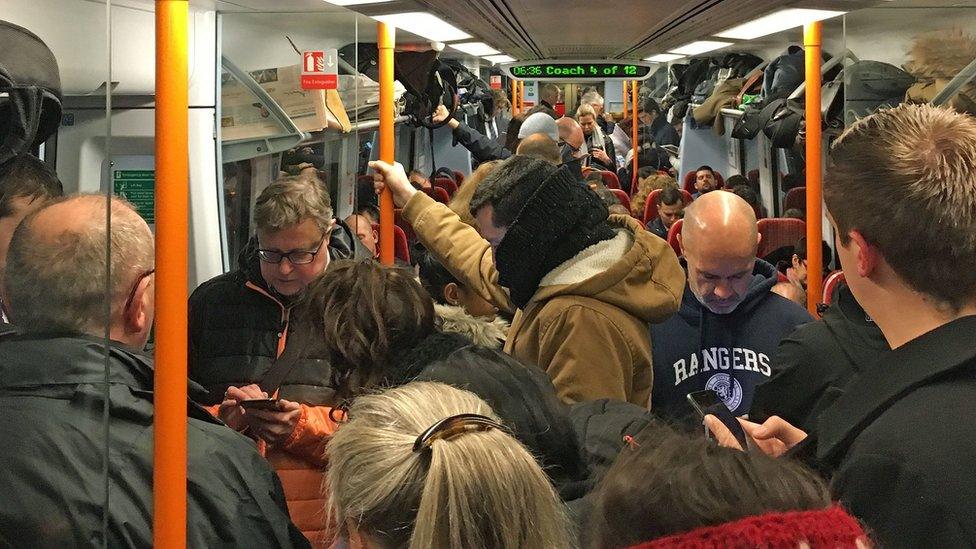
Earlier strikes led to cramped journeys for commuters
A Department for Transport spokesman said: "This is a dispute between a private company and the RMT.
"However, the transport secretary recognises the disruption caused to passengers and has met with union leaders on several occasions, including as recently as December, to help bring an end to the strikes.
"Nobody is losing their job as a result of driver-controlled operation trains, employees have been guaranteed jobs and salaries for several years."
- Published10 January 2018
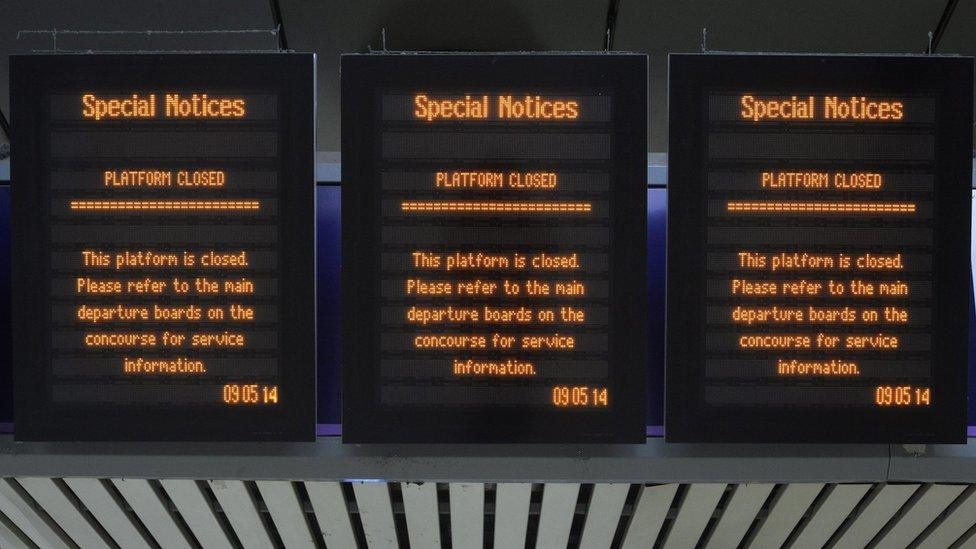
- Published8 January 2018

- Published20 December 2017
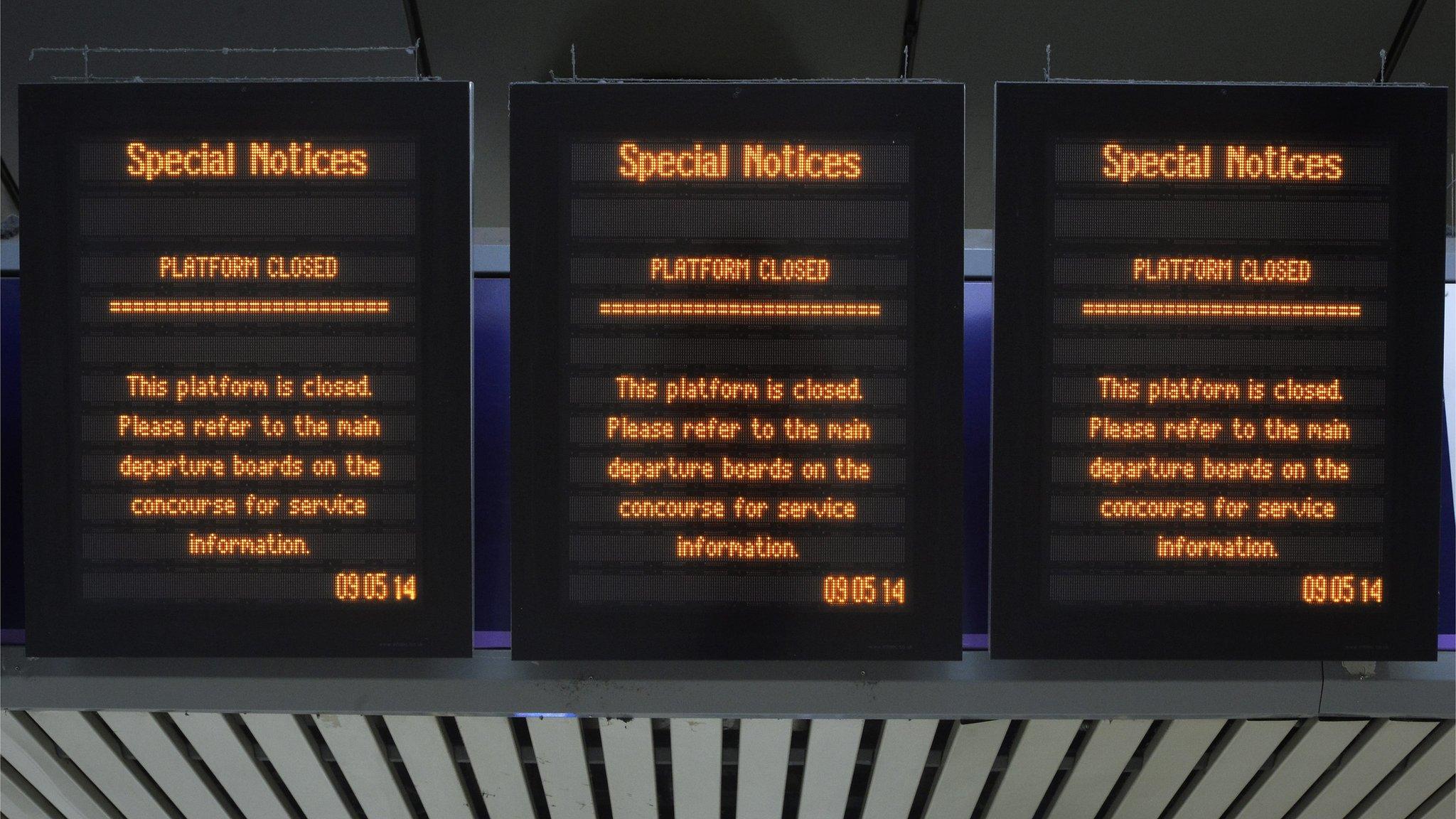
- Published13 December 2017
